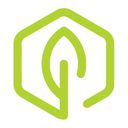10 Must-Have Skills You Need To Find A Remote Job In 2021

In many countries, COVID-19 turned remote work from a trend into a necessity. While the job market may seem uncertain, industries across the board are opening thousands of remote positions to catch up with the demand for their services or products.
If your goal is to get a remote job in 2021, it’s vital to stand out among the hundreds—sometimes thousands—of other candidates. Anticipate the company’s needs by offering the skills their teams need to get the job done.
Start planning the year ahead by reading about the 10 skills to get that exciting new remote job in 2021.
Hard skills to get remote jobs
1. Automation
Automation has left the factories to become an important tool in the office. The World Economic Forum’s Future of Jobs Report predicts that by 2025, “the hours of work performed by machines and people will be equal.”
You’ve probably used automation before—think scheduling social media content or email follow-ups. However, with the right tools, you can save even more time by automating more tasks.
For example, Airtable now has automation functions to keep your databases updated with no effort.
Zapier, Integromat and IFFT have hundreds of automated tasks to choose from, and give you the possibility of creating your own from scratch.
2. Digital Marketing
Another on-demand remote work skill in 2021 is digital marketing. WEF’s The Future of Job Report includes it in the industries that will experience growth in the next few years.
With a broad range of jobs, from social media management to content creation to marketing analytics, digital marketing skill will open doors to your next remote opportunity.
Even if you’re not planning to transition to digital marketing, having a solid grasp on the basics will be an asset for you in other fields, from advertising to content creation. Furthermore, basic marketing skills will help you promote yourself better during your remote job search.
There are plenty of options to learn digital marketing online, but Hubspot Academy is a good place to start. It offers comprehensive digital marketing courses for you to learn the basics.
3. Software Programming
Another important skill to help you find a remote job in 2021 is software programming. In fact, it’s on the list of the 10 most in demand jobs on LinkedIn.
Many people are reskilling—that is, learning the skills necessary to change careers. With the growth of tech jobs, workers are turning to software programming courses to start a fresh path in tech.
Even if you don’t want to become a programmer or engineer, knowing programming basics can still be a plus for other positions, from data analysis to customer tech support, another high-demand job on LinkedIn.
4. Data Science
Although some data analysis work will be automated, data science jobs have been in high demand since before the pandemic. After all, companies still need humans to strategize how to collect the data, interpret it and take action based on its insights.
Positions like data scientist, business analyst, and machine learning engineer are needed in all industries, from retail to healthcare.
Although data science is highly specialized, a traditional degree isn’t mandatory. EdX is a good place to search for data science courses and take the first step toward a new career.
5. People Management
As of June 2020, recruiting and team building among the trending skills on LinkedIn. Whether you’re a recent graduate or making a career transition, learning more about people management can come in handy not just for HR-oriented positions, but also for any management positions you aspire to fulfil.
Now that remote work is transforming teams around the world, people and culture management have a crucial role in helping companies thrive.
Although many in HR today come from different career paths, trained HR professionals are still in high demand. LinkedIn offers a Human Resources Foundations course that’ll get you started with the basics. Also, depending on your location, you may need an HR certification.
Soft skills to get a remote job
If technical skills give you the competencies to perform specialized jobs, soft skills are just as crucial—they show how you work, how you relate to others and adapt to challenges.
Keep reading to find out more about the soft skills you need to get a remote job in 2021.
1. Communication skills
With remote work, we often miss out on key components of human communication—tone of voice, body language and posture. So, it’s vital for all team members to take a more proactive, intentional approach to communication.
No matter what platform you use—Slack, Zoom, email, WhatsApp—it’s vital to understand how to make the most of them. However, remote teams communicate mostly via writing, so brushing up on your writing skills will be an asset.
A few ways to highlight your communication skills is by showing you’re proficient in some of the most popular communication and collaboration tools, how your presentation skills resulted in wins for your teams, or how your patience, empathy, and listening skills improved your teamwork in the past.
2. Proactivity
While you’re still part of a team, remote work requires you to be comfortable working independently, taking initiative, anticipating issues and coming up with solutions. Remote work requires teams to adapt to new tools and situations, think on their feet, and often collaborate with other departments. It’s not surprising recruiters are keen to find proactive, adaptable people.
A few ways to show this skill on your cover letter and resume are mentioning the results of your work processes, courses you’ve taken to upgrade your skills, and how you anticipated a problem by taking action before it happened.
Also, make sure your proactivity benefits your team—share new information or tools, or suggest changes in systems to improve workflow and avoid potential problems.
3. Intercultural skills
Remote work opens exciting possibilities to work with people from all over the world.
However, work cultures and communication styles vary depending on location and industry. For example, in some countries good communication is to be clear and direct, while in others, a good communicator reads the social context so well he or she doesn’t need to spell everything out.
Any experience working with a cross-cultural team will help showcase this skill on your resume—from a volunteering position or a student project if you’re a fresh graduate, to earlier work experience with teams from other countries if you’re farther into your career.
4. Time-management
Working from home creates different distractions—pets, kids, laundry, deliveries, neighbours, Netflix, your fridge, your bed.
With schedule flexibility making 9-5 a thing of the past and the adoption of asynchronous communication, it’s more important than ever to learn to manage time.
Start by creating the habit of tracking your time, and check the numbers after a week or two. With this data, find out when you’re productive and when you’re prone to distractions, and tweak your work schedule accordingly.
Which time management tools do you use? Do you have a system to prioritize tasks and crush deadlines? Showing you’re organized and able to manage your workload at home will put you one step ahead.
5. Adaptability
Few companies remained unchanged after the pandemic, so it’s vital to adapt to fast changes and show resourcefulness.
Are you able to learn to use new tools quickly? Are you open to changes in processes and systems? Are you keen to branch out to different tasks outside your scope of work to support other teams?
If you’ve done this before, bringing it up in your resume will show you can adapt to unexpected situations and get the work done.
In a complicated but exciting job market, staying on top of the game and updated on the latest trends will be your ticket to success. However, showcasing your remote work skills is just as important—highlight them on your resume and cover letter to get your foot in the door and find a remote job in 2021.
About the Author:
Cecilia Morales spends her time researching and writing about the future of work, mental health, and productivity. She’s produced hundreds of blog posts, dozens of advertorials and radio ads, and even a TV commercial or two. You can find her on her blog, remotemillennial.co
Related Posts:


Featured Remote Jobs
 Opened 5 days ago Featured Job Remote Job
Opened 5 days ago Featured Job Remote Job Opened 5 days ago Featured Job Remote Job
Opened 5 days ago Featured Job Remote Job Opened 11 days ago Featured Job Remote Job
Opened 11 days ago Featured Job Remote Job Closes in 12 days Featured Job Remote Job
Closes in 12 days Featured Job Remote Job Closes in 12 days Featured Job Remote Job
Closes in 12 days Featured Job Remote Job Closes in 9 days Featured Job Remote Job
Closes in 9 days Featured Job Remote Job Closes in 6 days Featured Job Remote Job
Closes in 6 days Featured Job Remote Job Closes in 5 days Featured Job Remote Job
Closes in 5 days Featured Job Remote Job Closes in 4 days Featured Job Remote Job
Closes in 4 days Featured Job Remote Job
